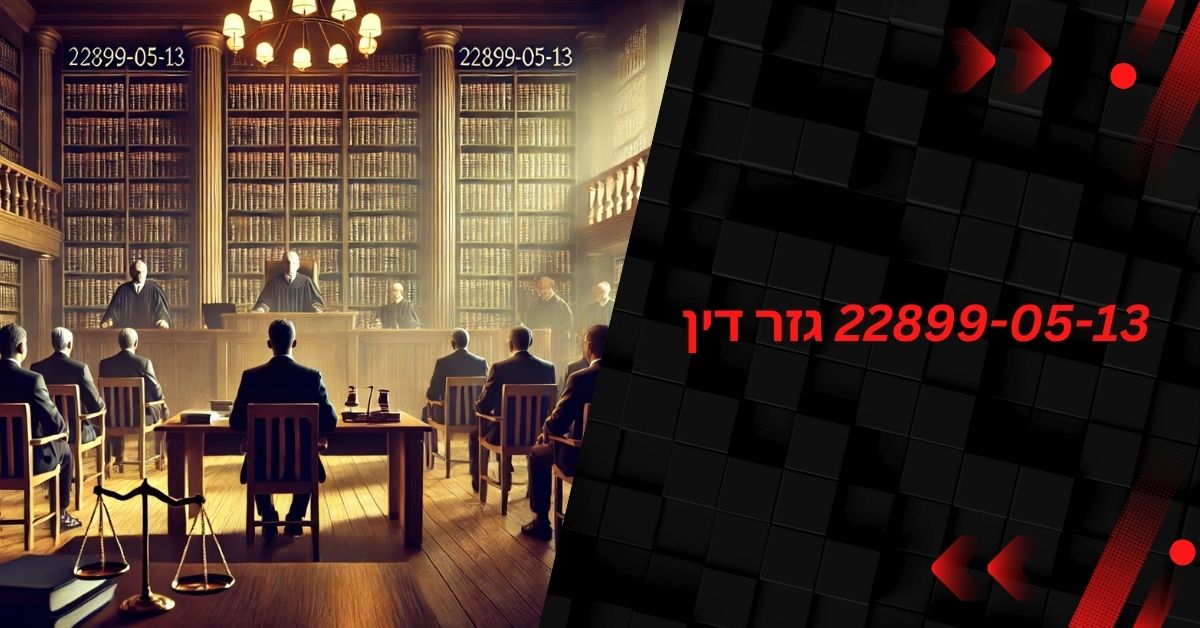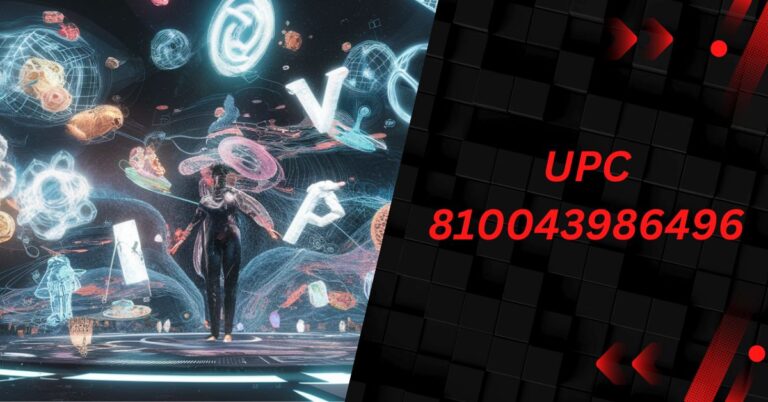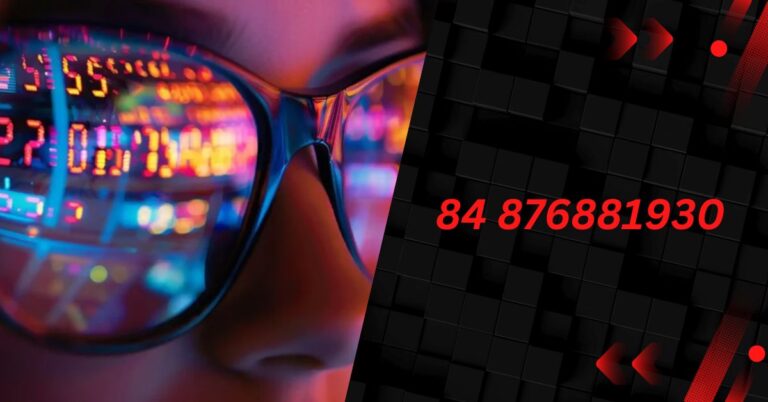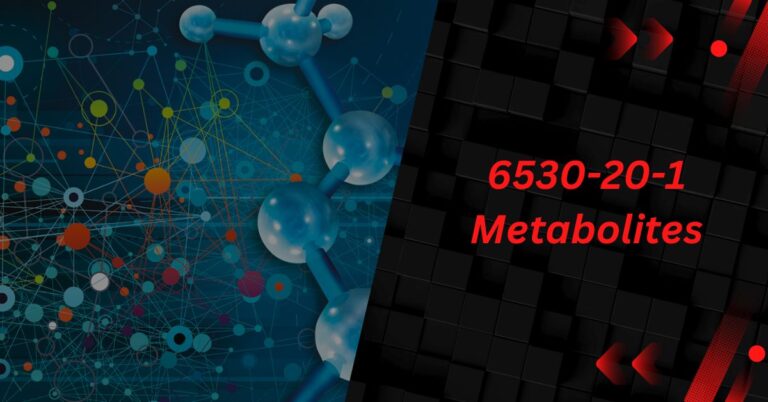“22899-05-13 גזר דין”: Understanding Its Impact and Implications
The ruling “22899-05-13 גזר דין” has emerged as a pivotal case in the landscape of legal interpretations. This landmark decision has reshaped how certain cases are approached and resolved, causing ripples throughout the legal community.
In this comprehensive article, we will explore the details of this ruling, its implications, and how it has influenced legal practices. We aim to provide insights that not only summarize existing information but also analyze its impact on legal interpretations and its relevance in today’s legal system.
The Background of the Case
To fully grasp the significance of the 22899-05-13 גזר דין ruling, it’s essential to understand its background. This case originated from a legal dispute that highlighted gaps in existing laws and the need for clarification in legal interpretations. The ruling addressed these gaps, offering a new perspective that has since influenced subsequent cases.
Legal Context
Before diving into the ruling itself, let’s explore the legal context surrounding the case. The judiciary operates within a framework of established laws and precedents. However, there are instances where these laws can be vague or open to interpretation. In the case of 22899-05-13 גזר דין, the court was tasked with clarifying certain ambiguities, which ultimately led to a groundbreaking decision.
Key Players Involved
The individuals and organizations involved in the case played crucial roles in its outcome. From plaintiffs to legal representatives, each party contributed to the unfolding of the case and its eventual resolution. Understanding their motivations and arguments provides valuable insights into the ruling’s context.
The Ruling: Key Highlights
The 22899-05-13 גזר דין ruling encompasses several critical points that have contributed to its status as a landmark decision. Below are some of the key highlights of the ruling:
Legal Principles Established
- Clarification of Legal Standards: One of the most significant outcomes of this ruling was the establishment of clearer legal standards. The court articulated specific guidelines that future cases can reference, ensuring a more uniform application of the law.
- Precedent for Future Cases: The ruling set a precedent that legal professionals can refer to when navigating similar cases. This creates a framework for understanding how the law can be applied in varying circumstances.
- Impact on Judicial Discretion: The ruling addressed issues related to judicial discretion, limiting the scope of interpretation that judges could exercise in specific cases. This has implications for how cases are evaluated and decided in the future.
Societal Implications
Beyond its legal significance, the 22899-05-13 גזר דין ruling has profound implications for society at large. By clarifying legal standards, the decision promotes fairness and consistency in the legal system. This can lead to increased public trust in legal institutions and the judicial process.
Analyzing the Impact of 22899-05-13 גזר דין
Influence on Legal Professionals
The ruling has significantly impacted legal professionals, shaping how they approach their cases. Here are some of the ways it has influenced their practices:
- Increased Research and Preparation: With the introduction of new legal standards, attorneys must invest more time in researching precedents and preparing their cases to align with the ruling.
- Training and Education: Legal education institutions have begun incorporating the 22899-05-13 גזר דין ruling into their curricula. This ensures that upcoming lawyers understand its implications and can apply its principles in practice.
- Strategic Case Management: Legal professionals are now more strategic in how they manage their cases, often using the ruling to leverage arguments that align with the newly established legal standards.
Implications for Future Legal Cases
The long-term implications of the 22899-05-13 גזר דין ruling extend beyond the immediate case. It has set the stage for how similar legal disputes may be resolved in the future:
- More Consistent Legal Outcomes: By providing clear legal standards, the ruling fosters consistency in case outcomes. This reduces the variability that can arise from different interpretations of the law.
- Encouragement of Legal Reform: The ruling has sparked discussions about the need for further legal reforms. Legal experts are examining other areas where ambiguities exist and advocating for changes that promote clarity and fairness.
Frequently Asked Questions (FAQs)
What is the significance of the 22899-05-13 גזר דין ruling?
The 22899-05-13 גזר דין ruling is significant because it clarified legal standards and established a precedent that influences how similar cases are approached and resolved. It promotes fairness and consistency in the legal system.
How has this ruling affected legal professionals?
Legal professionals have had to adapt their practices in response to the ruling. This includes increased research, training, and strategic case management to align with the new legal standards established by the ruling.
What are the societal implications of the ruling?
The ruling has positive societal implications by promoting fairness and consistency in legal outcomes. This, in turn, enhances public trust in the judicial system and legal institutions.
Are there any ongoing discussions regarding legal reform stemming from this ruling?
Yes, the ruling has sparked ongoing discussions about the need for further legal reforms in areas where ambiguities exist. Legal experts are advocating for changes that enhance clarity and fairness in the legal system.
How does the ruling impact future legal cases?
The ruling sets a precedent for future legal cases, fostering more consistent outcomes and encouraging legal reform in areas with similar ambiguities.
Conclusion
In conclusion, the 22899-05-13 גזר דין ruling has emerged as a landmark decision with significant implications for the legal community and society at large. By clarifying legal standards and establishing a precedent, it has influenced how legal professionals approach their cases and has encouraged discussions about the need for further legal reform.






